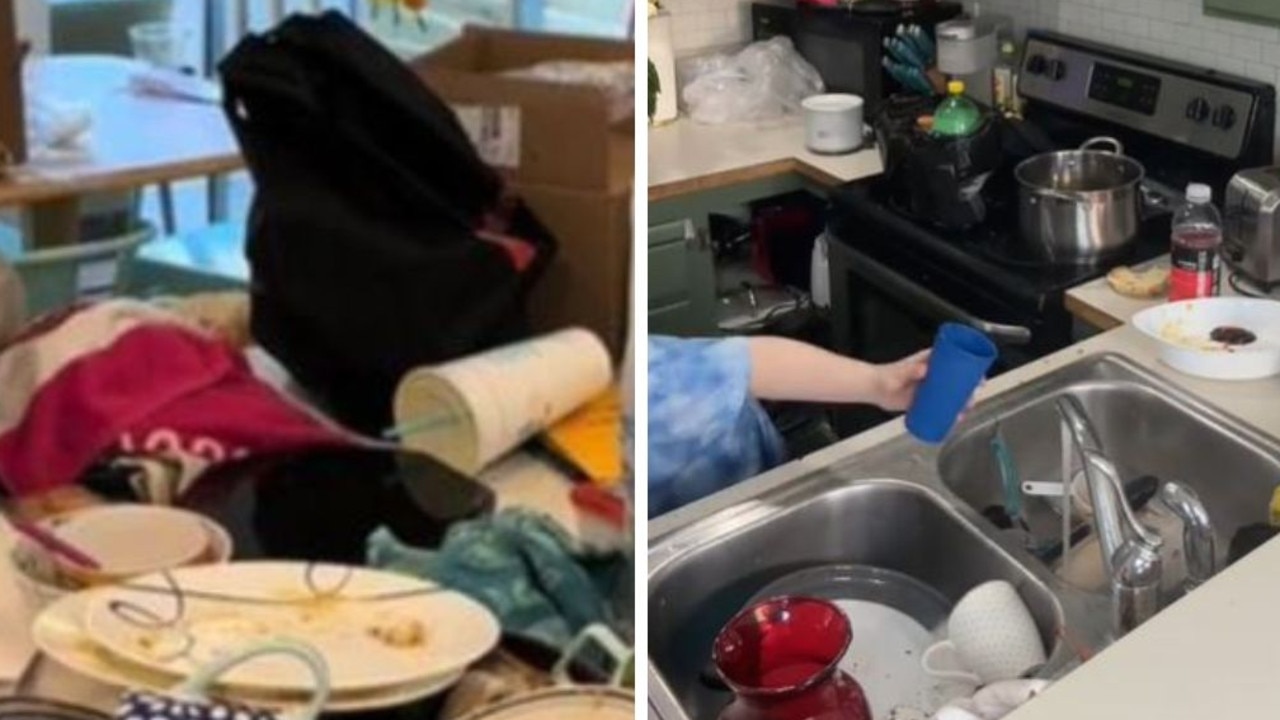‘My husband has blown his $50,000 inheritance on gambling’
A wife has described how her husband blew his $50,000 inheritance doing one thing that a lot of Aussie blokes do every day.

Welcome to Relationship Rehab, news.com.au’s weekly column solving all your romantic problems, no holds barred.
This week, our resident sexologist Isiah McKimmie delves into how to support a loved one with an addiction.
Question: I think my partner has a gambling addiction and I don’t know what to do about it. He always had a flutter at the races and would go on the pokies at the pub but it has recently spiralled out of control.
He’s always on his phone on gambling apps and I recently found out he’s spent most of the $50,000 inheritance his granddad left him. I’ve tried to gently raise the subject with him but it’s like talking to a child – he gets defensive and turns on me.
He lies about what he’s doing and isn’t fun to be around. I love him but I feel helpless. How do you help with someone with an addiction if they don’t want to help themselves?
Answer: Supporting a family member or friend with an addiction is challenging, especially if they’re in denial about the problem.
All forms of addiction have serious consequences for individuals, families and communities. I hope your partner is able to reach out for support before the situation escalates further.
See the addiction as the problem – not your partner
It can feel so personal when someone you love has an addiction.
Their lies, distance and damaging behaviours can feel like a lack of love for you. It might even feel like they love the object of their addiction more than you – and that’s painful.
Your partner isn’t consciously choosing these behaviours or intentionally hurting you.
It can be helpful to see the addiction as the problem – rather than your partner. Addiction is somewhat like a ‘third party’ in the relationship – one that can, unfortunately, come between you. When you and your partner can take on the issue of addiction together, as a team, you have a better chance of overcoming it.
Of course, this depends on his willingness to address the issue with you.

Anger and denial are common reactions to being confronted
It’s common for someone suffering from addiction to react with anger or denial when confronted about it. Underneath anger and denial are usually feelings of fear and shame.
It can take time for someone to acknowledge and be willing to address their addiction. It’s likely that you’ll need to be gently persistent in discussing this issue.
What to do if you think your partner has an addiction
You won’t be able to support someone who won’t help themselves, but there are some things that you can do to encourage your partner, or someone you love, to get help if you think they have an addiction.
• Don’t judge or blame
When discussing this with your partner, be mindful of seeming to blame or judge. Avoid ‘you statements’ and criticism. This is likely to cause your partner to shut down further.
• Share how you’re feeling
When sharing your concerns, aim to speak using ‘I’ language. Share things that you notice and your emotions.
For example:
I’ve noticed you spending more time on the apps lately.
I’m concerned about you right now.
I care about you and I want to support you.

•Ask questions and listen
Aim to understand how your partner feels and what is happening for him too. Your questions can feel supportive when they’re asked in the right way.
For example:
Would you like to talk about what’s going on?
How are you feeling about your gambling?
Is there anything I can do to support you?
• Set boundaries
Setting boundaries can support you moving forward. Boundaries aren’t the same as demands or ultimatums. They communicate what you need, while still giving your partner choice.
For example:
It’s not okay for me that you use the apps while we’re spending time together.
You’re welcome to spend your money on what you want, but I also need you to take care of your responsibilities.
Be mindful of enabling and co-dependency
When a partner has an addiction, it’s important to be supportive without enabling them. Your support can help recovery, but enabling can keep you both stuck. Enabling includes making excuses, allowing them to stay in denial or neglecting your needs.
Take steps to take care of yourself
Being in a relationship with someone with an addiction can take a toll on you. Make sure you continue to take care of yourself – emotionally and practically.
If you share any finances with your partner, take steps to protect yourself and your own assets. You don’t want to be left responsible for the implications of your partner’s addiction – especially if the relationship doesn’t last.
If you or your partner is experiencing gambling addiction contact Gambling Help Online.
Isiah McKimmie is a Couples Therapist, Sexologist, Sex Therapist and Lecturer. To book a session with her, visit her website or follow her on Instagram for more advice on relationships, sex and intimacy






